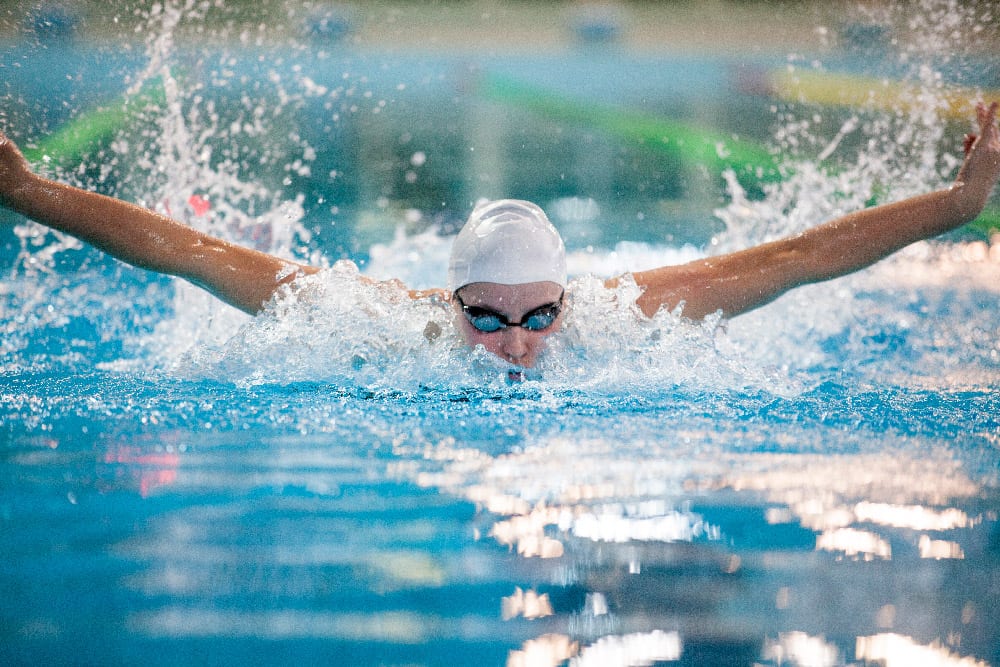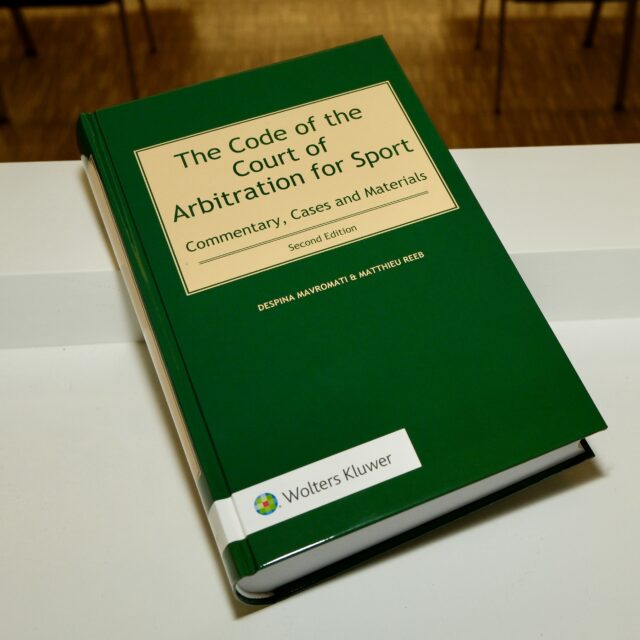Judgment 4A_318/2020 of 22 December 2020, Request for revision of the award CAS 2019/A/6148
Chinese elite swimmer Sun Yang (“Athlete”) has managed to occupy the headlines of international sports arbitration in recent years: after a CAS public hearing and several motions filed with the Swiss Federal Tribunal during the CAS proceedings, this important judgment constitutes the first in the CAS history where the SFT annulled a CAS award for bias of its Panel Chair, Mr. Franco Fratini.
The CAS Award had imposed an eight-year ban on the Chinese swimmer Sun Yang due to an anti-doping rule violation.
Request for revision and the new Article 190(2)(a) PILA
After the CAS award, the Athlete filed a motion to set aside the CAS award but also a request for revision of the latter. While the SFT normally starts its analysis from the motion to set aside the arbitral award, it departed from this rule and dealt with the request for revision first, for reasons of procedural economy: By annulling the CAS award and reverting the case back to the CAS for a new award in a different panel composition, the SFT did not need to deal with all the other grounds for annulment filed along with the main motion, which became moot. In view of the fairly recent modification of Art. 190(a) PILA allowing for revisions of arbitral awards, the SFT filled the gap by admitting the possibility to request the revision of the award after the expiry of the time limit to raise such challenges, provided that the requesting party was unable to discover the reason for the challenge during the arbitral proceedings by exercising due diligence.
In essence, the Athlete’s counsel claimed that an online article published after the issuance of the final award revealed problematic statements expressed by the Panel Chair through his twitter account. The arbitrator criticized a Chinese practice of dog slaughter that raised questions as to the arbitrator’s independence and impartiality (“This yellow face chinese monster smiling while torturing a small dog,deserves the worst of the hell!!!!”. The other tweets of the arbitrator can be found in para. 5.1 of the SFT judgment).
A limitation of the duty of curiosity for social media?
The SFT then examined whether the Athlete’s Counsel could or should have discovered the grounds for challenge earlier. Discarding WADA’s argument that the request was based on new evidence for old facts (i.e. the article published after the issuance of the CAS award), the SFT confirmed that the disputed elements were the tweets of the arbitrator and not the press article itself.
Most importantly, the SFT held that the Athlete’s counsel had indeed complied with their “duty of curiosity” by undertaking online search on the arbitrator, since the initial google search did not show anything suspicious. By referring to the rather evasive notion of the “duty of curiosity”, the SFT seemed to lower its requirements when it comes to the social media search: while the parties must actively search the websites of the main arbitration institutions, the parties, their counsel and their law firms, a party’s counsel should not be expected to systematically scrutinize all the online sources relating to a given arbitrator. This is also due to the ever-evolving number of social networks, even though the arbitrator’s twitter account was accessible to everyone and the twitter account appeared in the first entries of a Google search.
Challenge of an arbitrator: the standard of a reasonable third-party under the IBA Guidelines
The opinions of an arbitrator on the social media should be expressed with a certain restraint, irrespective of whether the particular declarations are made in his capacity as an arbitrator.
At a final stage, the SFT examined whether the statements of the panel chair could indeed justify his challenge as alleged by the Athlete. According to its settled jurisprudence, the SFT focused on the objective circumstances that give rise to the appearance of partiality. With references to the Pechstein judgment but also to the IBA Guidelines (at 7.4), it reiterated the principle (in section 2 (c) of the Guidelines) of the reasonable third-party standard.
While agreeing that an arbitrator is free to defend his convictions on social media, the SFT found that the choice of words used was very problematic. The SFT discarded arguments raised by WADA that the arbitrator’s tweets should be interpreted in the context in which they were made, i.e. on a social network where he did not express himself in his capacity as an arbitrator, reacting to images of violence towards animals. It held that an arbitrator must still express any opinions with a certain restraint – irrespective of whether the particular declarations are made in his capacity as an arbitrator.
Furthermore, expressions referring to the skin color (“yellow face”) of certain Chinese individuals – even if they are used in a particular context – have nothing to do with the acts of cruelty of certain Chinese nationals and are inadmissible irrespective of the context. An additional element taken into account was that the arbitrator made these remarks on more than one occasions and even after his appointment on the panel of the specific case.
Overall, the SFT seemed to depart from its previous jurisprudence (see Paulissen) and lower the burden of the parties’ counsel specifically for the social media search of any grounds for challenge within the applicable time limits; it still remains to be seen whether this approach will continue and, if so, whether it will lead to an ever-increasing number of requests for challenge / revision. The burden should still remain high as to whether such grounds were discoverable within the applicable time limits and the “due care” standard should also be measured by the due care shown by the party’s counsel in other aspects of the case. One obvious lesson to retain is that arbitrators, irrespective of whether they are acting in such capacity on social media, should always show a certain restraint in any declarations publicly made.







